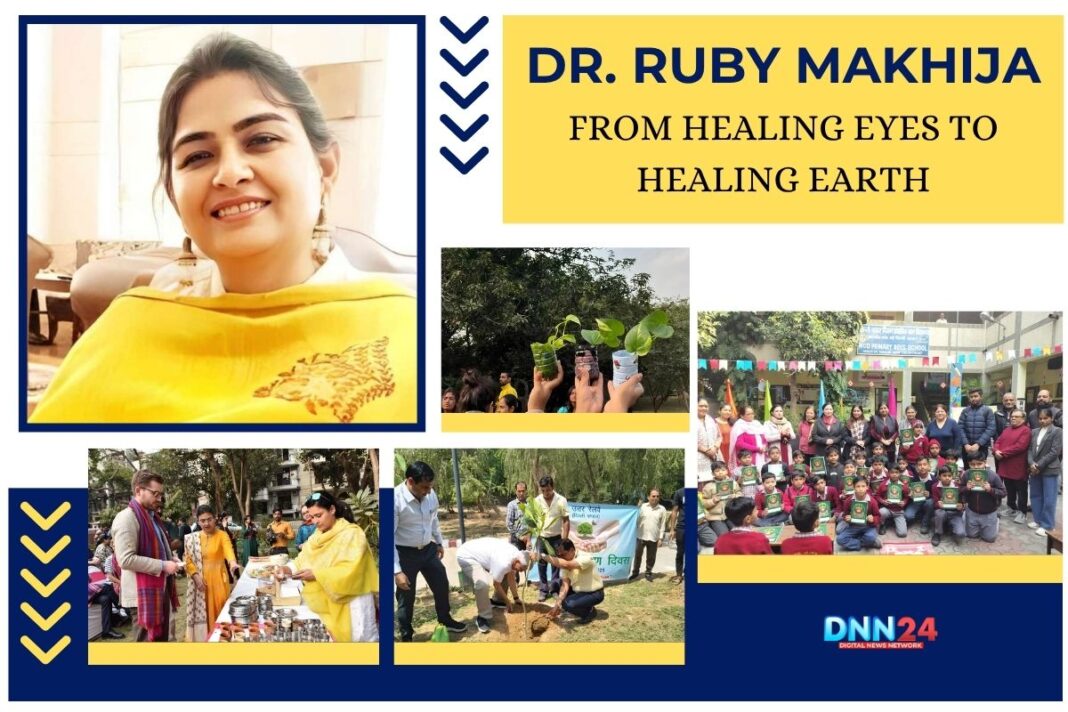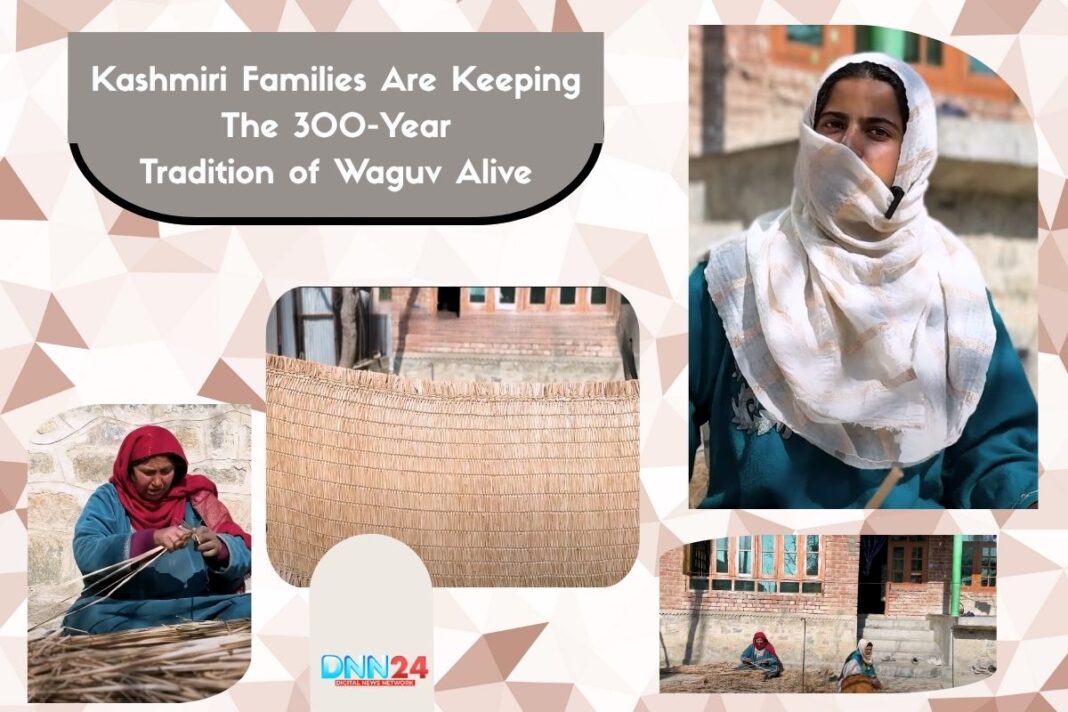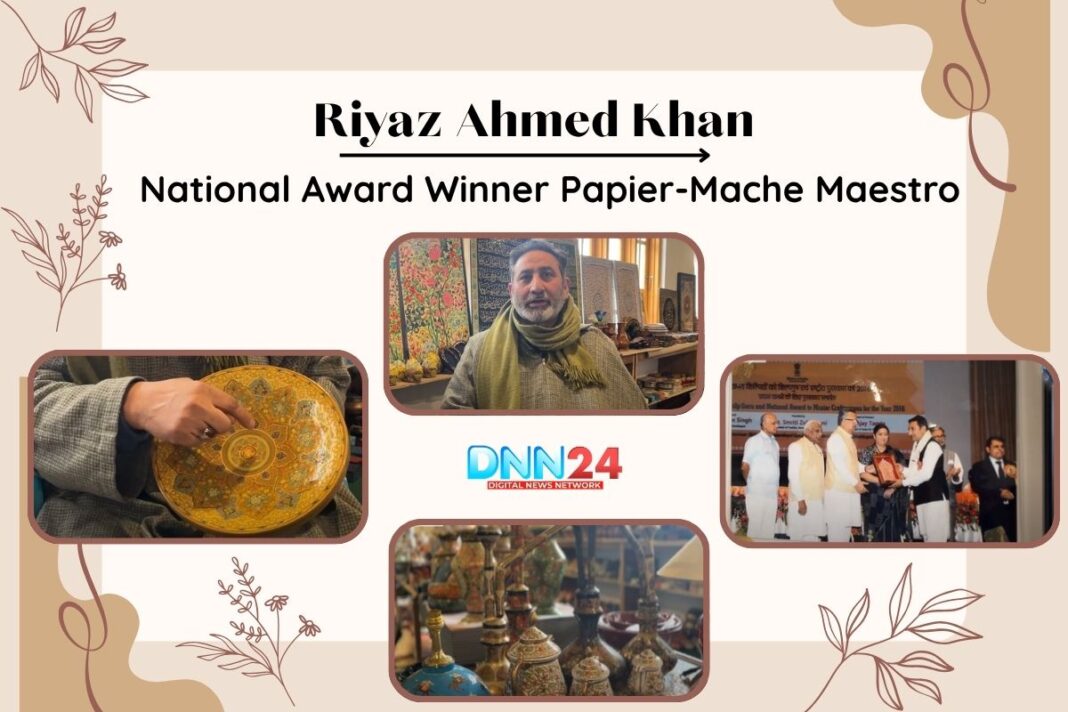Imagine an ophthalmologist, meticulously peering through a microscope, captivated by the intricate beauty of the human eye. This precise work of restoring sight eventually led to a profound realization: the world beyond the operating room needed healing with equal urgency. This isn’t merely a poetic analogy; it’s the very real journey of Dr. Ruby Makhija, who discovered that individual well-being is inextricably linked to the health of our planet. The exactitude demanded in ophthalmology became a powerful lesson in attention to detail, ultimately unveiling a fundamental truth applicable to environmental advocacy: prevention is always superior to a cure.
What began as a calling to heal eyes evolved into a mission to heal the earth. The same hands that once performed delicate surgeries now sort through waste, educate communities, and build sustainable systems. For Dr. Ruby Makhija, this profound transition was not a calculated plan but an organic evolution, born from the understanding that a doctor’s oath to “do no harm” extends far beyond hospital walls.When you witness the interconnectedness of human health and environmental wellness, stepping back becomes impossible. The stethoscope may have been set aside, but the healer’s instinct grew stronger, expanding from individual patients to entire communities seeking a healthier tomorrow.
Why Waste Wednesdays: When Alliteration Meets Action
Why Waste Wednesdays Foundation wasn’t created in a boardroom but sparked by a straightforward, impactful question that needed a memorable response, reflecting Dr. Ruby Makhija’s vision. Why waste anything when reduction, reuse, and recycling could transform our relationship with consumption? Wednesdays became the chosen day not by accident but by design—nestled comfortably in the middle of the week, offering that perfect pause between Monday’s momentum and Friday’s finish line.
Think about it: Wednesdays are when we’re neither rushing into the week nor racing toward the weekend. They’re the ideal time for reflection, for dedicating those extra hours to sustainability without the chaos that bookends our working days. The alliteration wasn’t just catchy marketing—it was a psychological strategy, making the concept stick in minds and roll off tongues with ease. From a simple nudge to rethink waste habits, the Foundation blossomed into a movement anchored by three revolutionary yet simple principles: segregate waste at source, say no to single-use plastic, and stop littering and spitting.
Today, over twenty projects span the Foundation’s portfolio—from Zero Waste events that prove large gatherings can be environmentally responsible to Recycle Melas that turn waste management into community celebrations. Project Vikalp and RRR Centres embody the practical application of idealism, bringing sustainability within reach of every home, community, and hopeful changemaker inspired by Dr. Ruby Makhija.
Dr. Ruby Makhija: The Zero Waste Revolution in Navjiwan Vihar
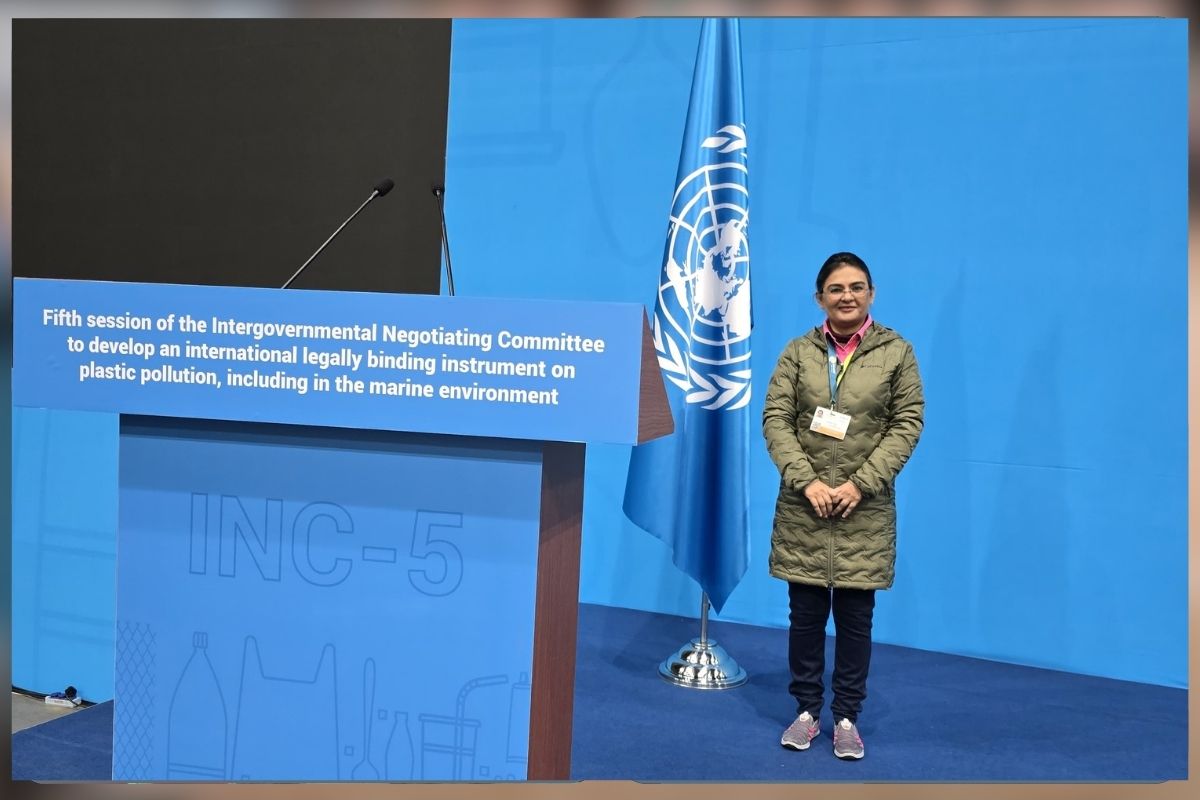
While transforming an entire colony into a zero-waste community might seem like an environmental fantasy, Dr. Ruby Makhija’s visionary leadership made it a tangible reality in Delhi’s Navjivan Vihar. The biggest enemy wasn’t plastic or organic waste—it was human nature itself. People genuinely wanted change, but only if it didn’t require changing their comfortable routines. The challenge lay in making sustainability feel less like a sacrifice and more like an evolution.
The strategy was refreshingly human: door-to-door education replaced top-down mandates, workshops included everyone from residents to domestic help, and transparency became the Foundation of trust. Municipal Corporation of Delhi’s support was crucial, but the real magic happened when every stakeholder—from curious children to hardworking sanitation workers—felt ownership of the process. Hand-holding replaced enforcement, creating systems so intuitive that following them felt natural.
Colour-coded bins stopped being confusing obstacles and became helpful guides. Composting pits transformed kitchen scraps into garden gold. The crockery bank eliminated disposable plates from community events, while Sunday donation drives turned decluttering into a social connection. Six years later, the numbers speak volumes: over 6.5 lakh kilograms of waste diverted from overflowing landfills. But the real victory lies in the mindset shift—when sustainability becomes instinctive rather than imposed, entire communities transform into living examples of what’s possible.
Dr. Ruby Makhija: The TEDx Message: Simplifying the Complex
Dr. Ruby Makhija Standing on TEDx stages twice, representing Earth Day Network as a Star speaker, the message remains beautifully consistent: waste isn’t the villain in our environmental story—our relationship with waste is. The talks, including “Plastic: A Miracle to a Menace,” break down overwhelming global issues into relatable, actionable steps that anyone can take immediately.
The philosophy challenges conventional thinking: sustainability doesn’t need caped crusaders or corporate budgets—it needs sincere, consistent efforts from ordinary people doing extraordinary things daily. Three cornerstone actions emerge repeatedly: segregation of waste at source, rejecting single-use plastic, and stopping littering and spitting. These aren’t revolutionary concepts, but their consistent application creates revolutionary results.
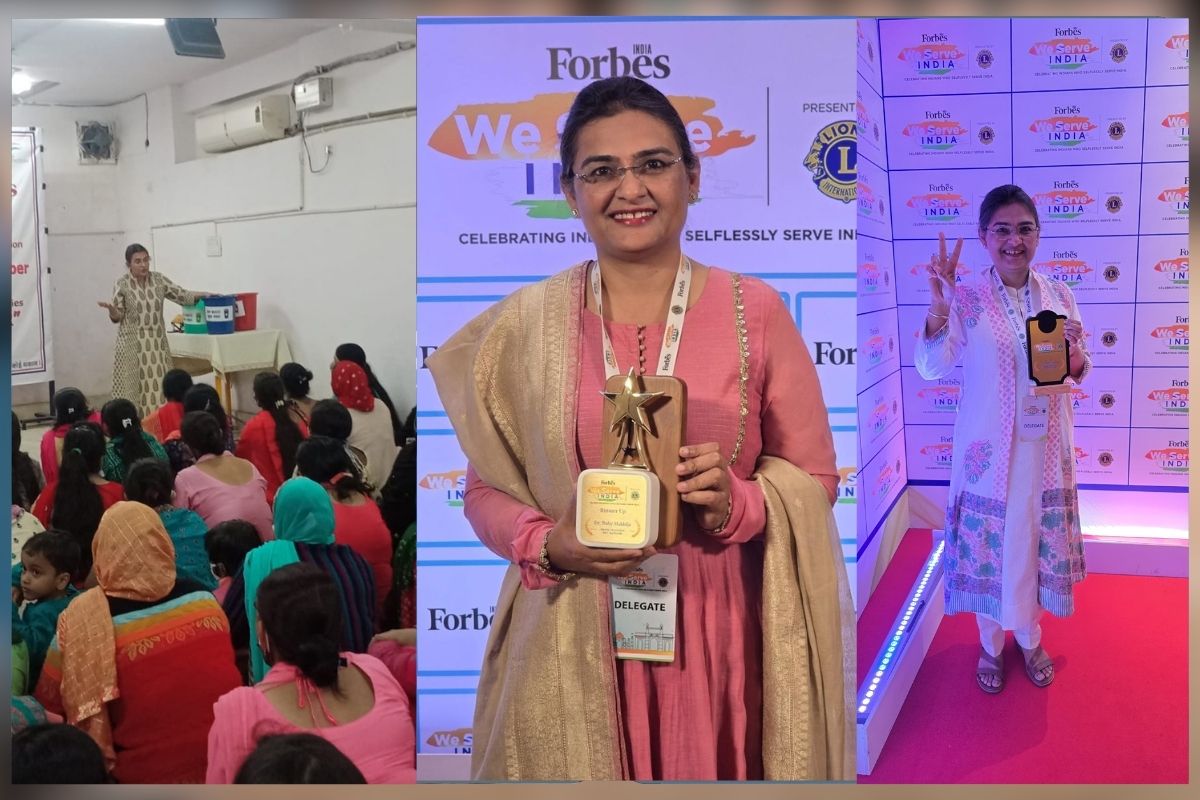
Every talk aims to demystify sustainability, stripping away the intimidating jargon and impossible standards that make people feel inadequate before they even begin. When environmental responsibility feels achievable rather than overwhelming, when it becomes instinctive rather than imposed, the ripple effects spread naturally from individual households to entire communities, creating a transformation that sustains itself.
Dr. Ruby Makhija Balancing Healing: From Eye Surgery to Ecosystem Surgery
The transition from ophthalmology to dedicating herself fully to environmental advocacy was not planned for Dr. Ruby Makhija; the passion to protect the environment became too strong to balance alongside her medical practice. While medical training provided invaluable foundations—resilience, attention to detail, systematic thinking—the mission expanded beyond individual patients to community wellness.
The shift represents evolution rather than abandonment: from healing eyes to healing entire ecosystems, from treating symptoms to addressing root causes, from individual care to community transformation. Healthcare experience proves invaluable in environmental work—both require patience, precision, and unwavering commitment to improvement over immediate gratification.
The skills transfer seamlessly: diagnosing problems, prescribing solutions, monitoring progress, and adjusting treatments based on results. Whether examining retinas or waste systems, the fundamental approach remains unchanged: careful observation, thoughtful intervention, persistent follow-up, and celebration of progress, however incremental it might seem.
Dr. Ruby Makhija: Personal Moments That Define Purpose
Dr. Ruby Makhija believes that while some victories are celebrated with charts and data in boardrooms, the most impactful ones unfold in living rooms, amidst toddlers and banana peels. When a mother shared that her two-year-old daughter automatically sorted organic waste into green bins and wrappers into blue ones—without reminders or rewards—that moment captured the essence of transformational change. Sustainability had become instinctive, natural, and effortless.
Another defining moment involved witnessing a waste worker handling hazardous materials without protective equipment. That image is connected directly to the principles of the medical oath: “Not harm.” Suddenly, the mission expanded beyond teaching cleanliness to ensuring dignity—for people and planet alike. Healing society means protecting its most vulnerable members, ensuring safety and justice for those whose labour makes our comfort possible.
These personal encounters reinforce a fundamental truth: environmental work isn’t about policies or procedures—it’s about people. Every programme, initiative, and system designed must centre on human dignity, community empowerment, and collective responsibility for shared spaces and futures.
Dr. Ruby Makhija: The Power of Community Engagement
Dr. Ruby Makhija believes that lasting sustainability is achieved when communities lead the way, guided by realistic solutions and steady encouragement instead of pressured deadlines. Instead of simply instructing people on what to do, effective programmes walk alongside communities through entire transformation processes.
Whether teaching domestic workers proper waste segregation techniques, guiding senior citizens toward eco-friendly alternatives, or establishing systems so intuitive that following them feels effortless, the goal remains making sustainability achievable and supported. Art projects, theatre performances, friendly competitions, children’s groups, and resident committees create emotional investment in outcomes.
Programs like Paint A Bag transform waste containers into community art projects. Sanskaar initiatives engage children as sustainability ambassadors in their own families. RRR donation drives turn decluttering into a social connection while supporting those in need. When people feel valued, heard, and supported, they respond with enthusiasm rather than resistance. Top-down mandates create compliance; bottom-up engagement creates commitment.
Dr. Ruby Makhija- Policy and Practice: Making Change Sustainable
Being both a Brand Ambassador and a member of the Municipal Corporation of Delhi’s Plastic Waste Task Force, Dr. Ruby Makhija witnesses policy effectiveness up close. The most successful initiatives combine regulation with education, prohibition with practical alternatives. Blanket bans without community preparation often fail; supported transitions with viable options tend to succeed.
Project Vikalp exemplifies this approach, offering cloth bags in markets and malls through returnable deposit systems. Students vs. Plastics Toolkit directly engages educational institutions. Awareness campaigns partnered with MCD and NSS create official support for grassroots initiatives. Reward-based recycling events make environmental responsibility celebratory rather than burdensome.
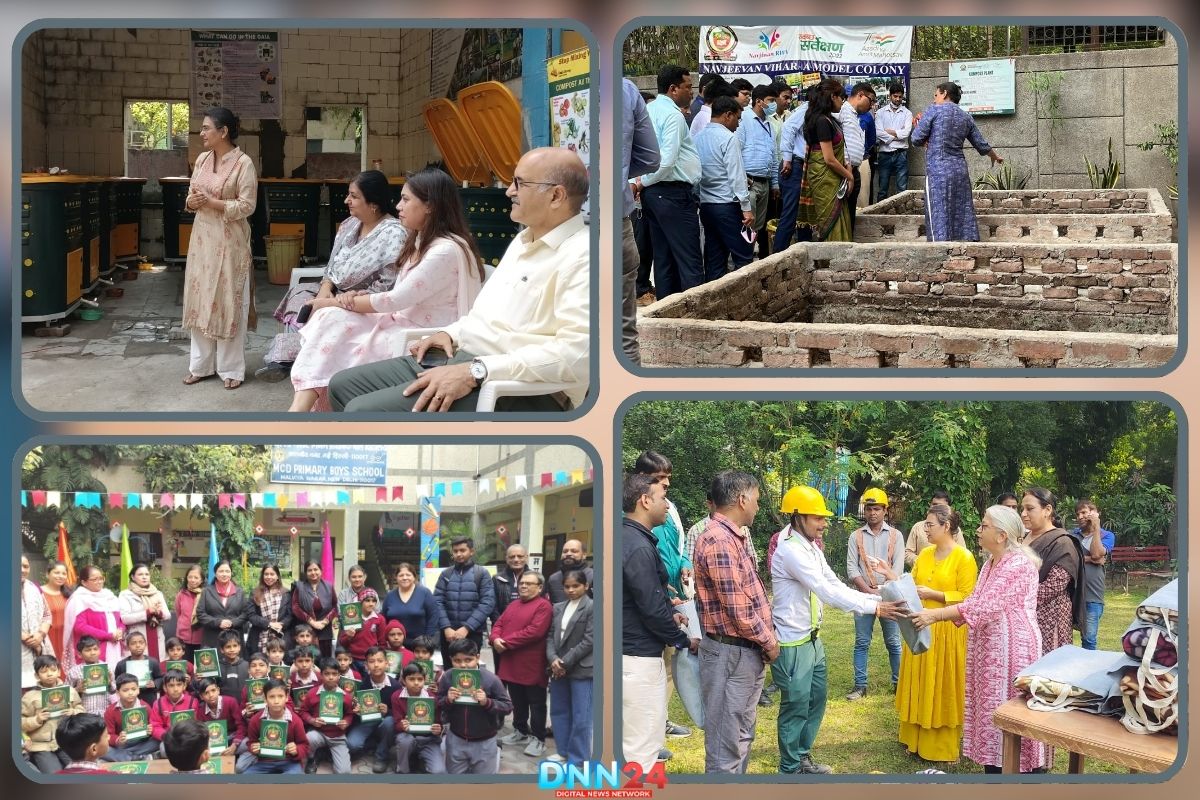
The key ingredients for successful policy implementation include engaging visuals that communicate across literacy levels, localized messaging that respects cultural contexts, and comprehensive involvement of schools, shopkeepers, municipal teams, and community leaders. When policies feel locally owned rather than externally imposed, compliance becomes voluntary rather than forced.
Also Read: From Ashes to Hope: The Journey of Atchayam Trust’s Mission to End Begging in India
You can connect with DNN24 on Facebook, Twitter, and Instagram and subscribe to our YouTube channel.

